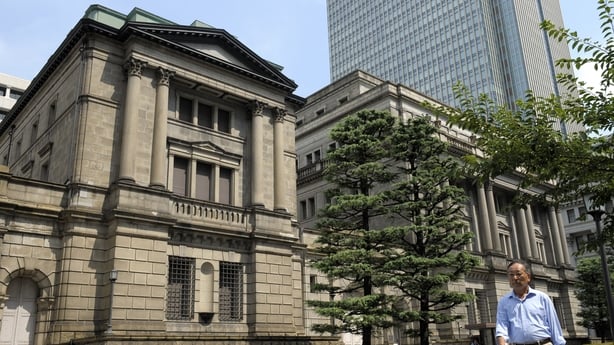Japan's best run of growth in a decade looks set to stretch into 2018, with data showing most factories and consumers stepping up a gear, giving policymakers more reasons to discuss an end to crisis-era stimulus.
Industrial production marked its first back-to-back months of increases this year, with a 0.6% in November following a 0.5% gain in October, the government said.
Japanese factories are churning out memory chips for smart phones and semiconductor manufacturing equipment to fill orders from Asia and North America.
Japan's long-cautious consumers are also spending more on electronics, cars and fuel, numbers showed.
Retail sales in November increased 2.2% from a year earlier, better than the 1.2% predicted by economists.
Analysts said that consumer spending is doing well, supported by rising stock markets.
Manufacturers project that output will jump 3.4% in December but then drop 4.5% in January, suggesting some moderation.
The numbers add to a string of data showing Japan's economy is in its best shape in more than a decade.
The jobless rate is at a 24-year low, exports have risen every month this year, business investment is up for four quarters in a row and GDP has expanded every quarter for nearly two years.
Japan's stock market, meanwhile, has rallied more than 20% this year to reach 26-year highs, which has also boosted consumer sentiment.
The surprisingly strong growth in recent months prompted some Bank of Japan board members to raise the prospect of reducing the central bank's massive stimulus, a summary of opinions from last week's meeting showed today.

Such policies were aimed at jolting Japan out of deflation but some Bank of Japan board members are encouraging debate about raising rates or lowering purchases of exchange-traded funds.
If the outlook for prices and the economy improves, the bank will need to consider whether "adjustments in the level of interest rates will be necessary," one board member said.
Another board member said the BOJ should examine the policy effects and the possible side effects of ETF purchases from "every angle" because of rising stock prices and earnings.
Inflation, however, remains stubbornly low, with the core consumer price index up 0.9% in November, data this week showed, far from the Bank of Japan's target of 2%.
Bank of Japan Governor Haruhiko Kuroda said last week that as long as consumer prices remain distant from the bank's 2% inflation target he does not want to raise rates.
When the Bank of Japan first launched its ETF purchases in 2013, it argued such buying of unconventional assets would lower risk premiums and help the economy overcome deflation.
But some traders argue that the Bank of Japan'ss ETF purchases artificially push up the prices of underlying shares, and that strong stock market gains this year mean these purchases are no longer warranted.

